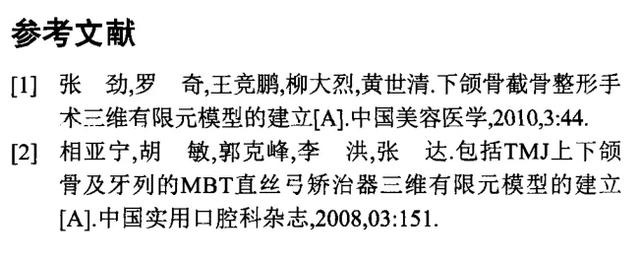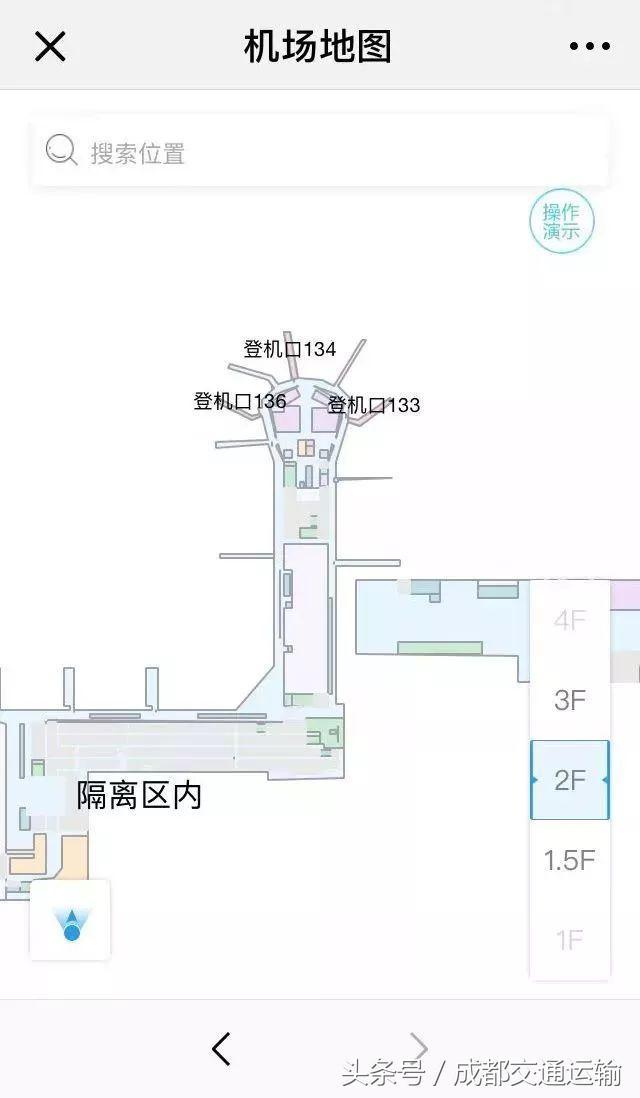为什么越来越多越南人会说汉语(越南有可能重新启用汉语和汉字吗)
18世纪末的“西山起义”,造反的农民推翻阮氏政权,反对原统治者使用的汉字,大力推广“字喃”。19世纪法国殖民印度支那,在实际上废除了汉字教育,强迫使用其搞得“越南语拉丁字母拼法”,其实是法语字面拼写越语。越南人对自己使用的文字越来越不自信,在美版知乎Quora上,越南网友提问道:越南有可能重新启用汉语汉字吗?这引起各国网友的热议,我们看看他们的回答。

问题:越南有可能重新启用汉语和汉字吗?

越南网友路西卡的回答
Before the arrival of the French, Chinese characters were the official language of Vietnam.
在法国人到来之前,汉字一直是越南的官方语言。
The names of books, temples, historical sites and official institutions in Vietnam are written in Chinese characters and use Chinese and grammar, but Chinese is not the mother tongue of most Vietnamese. Chinese has complicated grammar and lacks many corresponding Vietnamese local vocabulary, so it can not accurately express Vietnamese.
越南的书籍、寺庙、历史遗迹和正式机构的名称都是用汉字书写的,而且使用汉语和语法,但汉语并不是大多数越南人的母语。汉语有着繁杂的语法,缺少许多对应的越南本土词汇,不能准确地表达越南语。
Historically, the upper class of Vietnamese society preferred Chinese characters because it is a symbol of civilization. They always avoid using the Vietnamese dialect. Until finally, someone invented Chu Nom based on Chinese characters. The reason why Chu Nom are not standardized is mainly because the upper class prefers Chinese characters.
在历史上,越南社会的上层阶级更喜欢汉字,因为它是文明的标志。他们总是避免使用越南语这一方言。直到最后有人发明了基于汉字的“喃字”。“喃字”之所以没有被标准化,主要是因为上层阶级偏爱汉字。
Over the years, Chu Nom has only been used in vernacular literature by other poets, which makes mumbling too complex and too many variants to be used as an official writing system.
多年来,《喃字》只被其他诗人用于白话文学,这使得《喃字》过于复杂,变体太多,无法作为官方书写系统使用。
Vietnam could have had a writing system based on simplified mumbling, but unfortunately, the official literati failed to give it such an opportunity. As for Chinese characters, because Vietnamese is very different from Chinese, it will never become the official writing system of Vietnamese without modification.
越南本可以有一个基于简化“喃字”的书写系统,但不幸的是,官方文人没能给它这样的机会。至于汉字,由于越南语与汉语有很大的不同,如果不加以修改,它永远不可能成为越南语的官方书写系统。
Now, it is too late for Vietnamese to come up with any other text substitution system. When the current language system works well, most people will have no time to learn the new language system.
现在,对于越南人来说,想出任何其他文字替代系统都为时已晚,当当前的语言系统运行良好时,大多数人将没有时间学习新的语言系统。
The best solution I have always supported is to reintroduce Chinese characters into literature classes in Vietnam's education system. Vietnamese children should learn some basic Chinese characters that are important in Vietnamese culture, as well as popular poems and phrases used in important landmarks in Vietnam.
我一直非常支持的最好的解决方案是在越南的教育系统中,在文学课上重新引入汉字。越南儿童应该学习一些在越南文化中很重要的基本汉字,以及越南重要地标建筑中使用的流行诗歌和短语。
Most of the voices against this idea come from radical nationalists and overseas Vietnamese, who have irrational fear of China. But I know that many Vietnamese support me very much, and there are children who are very eager to learn what they see in movies and historical sites. Koreans and Japanese have no problem teaching Chinese characters in their own education system, and Vietnamese have too many problems.
反对这一想法的声音大多来自激进民族主义者和海外越南人,他们对中国有着非理性的恐惧。但我知道很多越南人非常支持我,还有孩子们,他们非常渴望学习他们在电影和历史遗迹中看到的东西。韩国人和日本人在自己的教育体系中就没有教授汉字的问题,越南人毛病太多。
In addition, if Vietnamese don't want Chinese characters to become a part of our culture and don't want foreigners to understand this fact, wish them good luck. How can they explain to future tourists why our buildings are written in "Chinese". In this regard, how can we alleviate our embarrassment?
此外,如果越南人不想让汉字成为我们文化的一部分,不想让外国人了解这个事实,那么祝他们好运,他们该怎样向未来的游客解释为什么我们的建筑是用“中文”写的,在这一点上,我们又如何缓解自己的尴尬呢?

美国语言学家Greg的回答
Re entering school as a subject? Possible, but unlikely.
作为一门学科重新进入学校?有可能,但可能性不大。
First of all, as many people have pointed out, Vietnamese has more pronunciation than Japanese, so there is no need to use Chinese characters to avoid homonyms.
首先,正如许多人指出的那样,越南语的发音比日语还要多,因此没有必要使用汉字来避免同音词。
Second, it is impractical for Vietnamese to suddenly change their writing system, which requires a lot of human, material and financial resources and considerable work.
第二,让越南人突然改变他们的书写系统是不切实际的,这需要投入大量的人力物力财力,做出相当大的工作。
Third, but perhaps at a deeper level, Vietnamese just want to keep a distance from any Chinese, including Chinese characters, which will also happen in South Korea. They want to remove the part of their traditional culture that originated in China.
第三,但也许在更深层次上,越南人只是想与任何中国人保持距离,包括汉字,这种情况在韩国也会发生。他们想去掉他们的传统文化中起源于中国的部分。
This may be naturalistic or non naturalistic, but I think it is at least due to deeper cultural insecurity. In this regard, I don't even think Vietnam will reintroduce Chinese characters as a school subject.
这可能是自然主义或非自然主义,但我认为至少是由于更深层次的文化不安全感,就这一点而言,我甚至不认为越南会将汉字作为一门学校科目重新引入。
For Japan, this is not a problem. Over the past 100 years, Japan has been the most powerful and advanced country in Asia not only in military affairs, but also in science, culture and art.
对日本来说,这不是问题。在过去的一百多年里,日本不仅在军事上,而且在科学、文化和艺术上都是亚洲最强大、最先进的国家。
They no longer regard the use of Chinese characters (or Chinese characters) as a symbol associated with Chinese, but as an inherent part of their unique traditional culture. It is precisely because they are more developed than other Asian countries, including China, that the Japanese elite have no sense of insecurity about the use of Chinese characters.
他们不再把使用汉字(或汉字)视为与汉语有关联的标志,而是将其视为自己独特传统文化的固有组成部分。正是因为他们比包括中国在内的其他亚洲国家更发达,所以日本精英对使用汉字没有任何不安全感。

越南网友卢永福的回答
If the Vietnamese hadn't given up Chinese characters, what would they do now?
如果越南人没有放弃汉字,他们现在会怎么样?
1. A large number of Vietnamese can easily come to China to do business, and there will be no obstacles to the communication between Chinese and most Vietnamese. The investment scale of Chinese companies in Vietnam will be much larger. As a result, Vietnam's economic situation will be much better and the income of the Vietnamese people will be higher.
1.大量越南人可以轻松地来中国做生意,中国人和大部分越南人之间的交流不会有任何障碍。中国公司在越南的投资规模会大得多,其结果是,越南的经济状况将比现在好得多,越南人民的收入也将比现在高。
2. Vietnam's traditional culture will be better inherited, rather than producing current jokes such as "Vietnam Phoenix comes from France". At the same time, Vietnamese people will be able to easily read their own ancient documents.
2.越南的传统文化会更好地传承下去,而不是产生像“越南凤凰来自法国”这样的时下笑话。同时,越南人将能够轻松阅读自己的古代文献。
Chinese uses Chinese characters to record and express meaning. Two words with the same pronunciation have different meanings due to different Chinese characters. Just like Vietnamese, there are also homonyms. Without Chinese characters, how can they distinguish two Chinese characters with different meanings? The answer is that there is no way to distinguish them. The meaning of individual characters is gradually forgotten, and these characters have meaning only when placed in words. A single character has no meaning.
汉语是用汉字来记录和表达意思的,两个发音相同的词由于汉字的不同而有不同的意思。越南语也有同音词,就像汉语一样。没有汉字,他们怎么能区分两个意思不同的汉字呢?答案是,没有办法区分它们,单个字符的含义逐渐被遗忘,而这些字符只有放在单词中才有意义。单个字符没有意义。
Many young people no longer know the meaning of a single word. For example, the word "Ming" has different meanings in different words, but it is usually called "Liang", which means "very bright". Beginners can speculate that this word means light, because the word "Guangming" in Chinese is also very common.
许多年轻人不再知道单个单词的含义。例如,“明”这个词在不同的词中有不同的含义,但它通常被称为“亮”这个词,意思是“非常亮”。初学者可以推测推测,这个词的意思是光,因为汉语中的“光明”一词也很常用。
Someone might say that this is the same as English. I just need to know that "bright" means bright, not why it means bright.
有人可能会说这和英语一样,我只需要知道“bright”的意思是bright,而不是为什么它的意思是bright。
Many people may know the meaning of "Ming" in "light", but if you ask them what "Ming" means in "invention", they may say that "Ming" itself does not mean anything. When it is put together with "light", it only means one word.
很多人可能知道“明”在“光明”中的含义,但如果你问他们“明”在“发明”中是什么意思,他们可能会说“明”本身并不意味着什么,它与“光明”放在一起时只意味着一个词。
Because there are a large number of homonyms in Chinese, Chinese and Vietnamese also have homonyms with the same pronunciation but different meanings. This is why Vietnamese who have lost Chinese characters only remember one pronunciation and gradually forget its meaning.
由于汉语中有大量的同音词,汉语和越南语也有同音词,发音相同,但意义不同。这就是为什么已经失去汉字的越南人只记得一个发音,逐渐忘记了它的意思。
There's a joke: the Vietnamese teacher said that she didn't understand why people go to a brighter place after death, and it didn't help to discuss with many teachers, but now she asked me if I understood (a Vietnamese asked a Chinese Vietnamese word for the meaning of Vietnamese), or the Vietnamese generally know that the word Ming means light, but I don't know that the word corresponds to "Ming", This Chinese character Ming "he" Ming (meaning underground world) is a homonym.
有个笑话:越南老师说,她不明白为什么人们死后要去一个更明亮的地方,和许多老师讨论也无济于事,但现在她问我是否明白(一个越南人问一个中国人越南语单词的意思),或者是越南人普遍知道的明这个词的意思是光,但不知道这个词对应的是“明”,这个汉字明“和”冥 (意思是地下世界)是同音字。
3. Vietnamese will be able to read Japanese and even easily communicate with Koreans specializing in law and other disciplines. Because there are a large number of Chinese characters in Japanese, we can roughly guess their meaning, although not all.
3.越南人将能够阅读日语,甚至可以轻松地与专门从事法律和其他学科的韩国人交流,因为日语中有很大一部分汉字,因此可以大致猜出其含义,尽管不是全部。
People engaged in legal work in Korea are usually familiar with Chinese characters, because Korean law uses many terms, and understanding and interpreting these terms requires a lot of knowledge of Chinese characters.
在韩国从事法律工作的人通常熟悉汉字,因为韩国法律使用许多术语,理解和解释这些术语需要大量的汉字知识。
Many Koreans, especially young people, are not familiar with the use of Chinese characters. In addition, in the current Korean school curriculum, it is not a compulsory course, so they at least have no obligation to learn it.
许多韩国人,尤其是年轻人,不熟悉汉字的使用方法。此外,在目前的韩国学校课程中,它不是一门必修课,所以他们至少没有义务学习它。
However, since Chinese characters are still a large part of modern Korean, the understanding of basic Chinese characters is considered to be the common knowledge of Koreans. Therefore, most Koreans learn basic Chinese characters for learning (especially those who learn Chinese or Japanese) and liberal arts purposes. They can read Chinese characters even if they don't write them themselves.
然而,由于汉字仍然是现代韩国语的一大部分,对基本汉字的理解被认为是韩国人的共同知识。因此,大多数韩国人学习基本汉字是为了学习(尤其是那些学习汉语或日语的人)和文科目的,即使他们自己不写汉字,也能读汉字。
4. The most important thing is that Vietnam can watch Chinese movies and videos through the Chinese Internet without translation.
4.最重要的一点是,越南可以通过中国互联网观看中国电影和视频,而无需翻译啊。
,免责声明:本文仅代表文章作者的个人观点,与本站无关。其原创性、真实性以及文中陈述文字和内容未经本站证实,对本文以及其中全部或者部分内容文字的真实性、完整性和原创性本站不作任何保证或承诺,请读者仅作参考,并自行核实相关内容。文章投诉邮箱:anhduc.ph@yahoo.com






